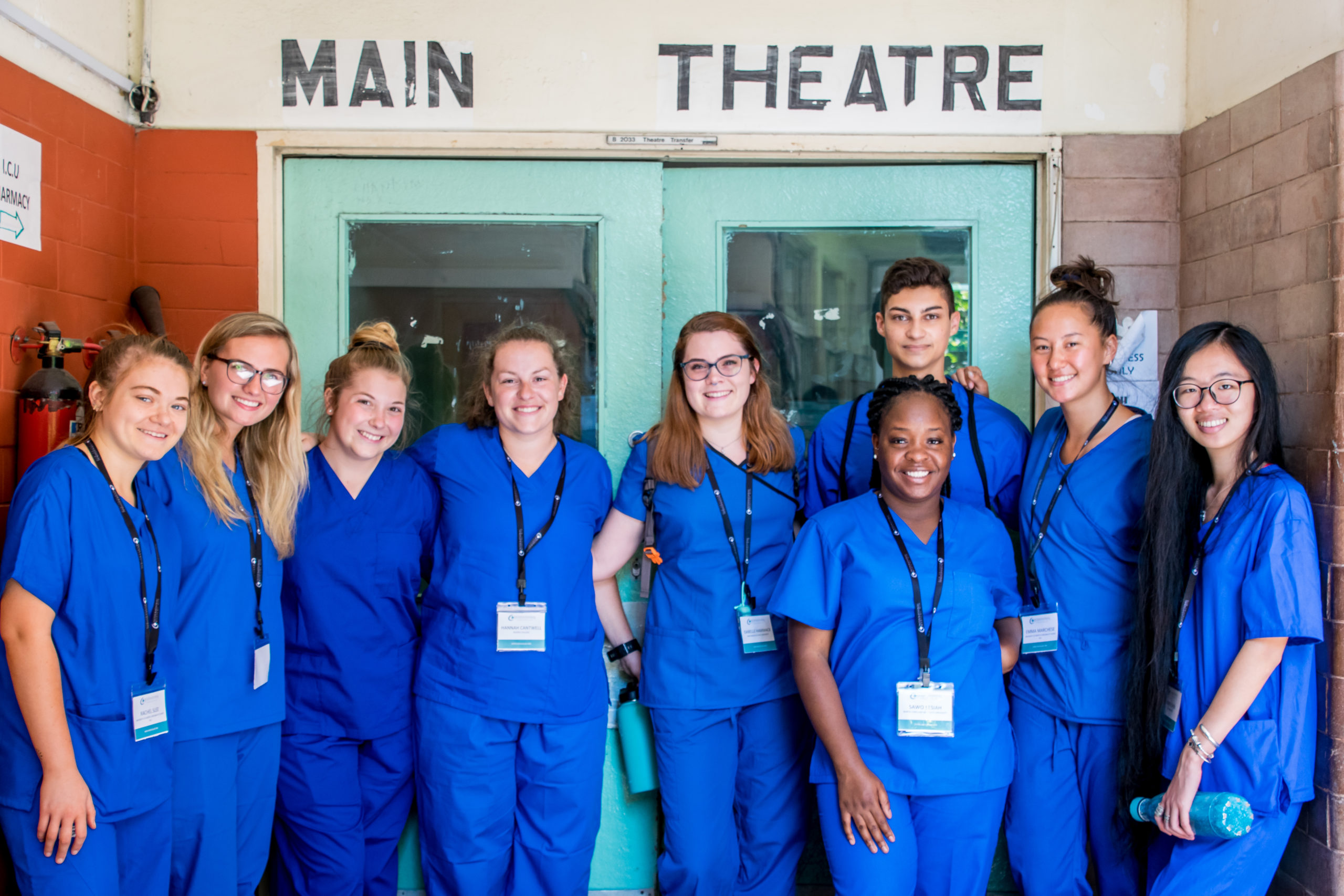PA school requirements are almost as stringent as those of becoming a medical doctor. Although a PA job is rewarding, it takes hard work to meet the requirements for PA school. Nevertheless, if you have the drive and follow this guide keenly, you will be a licensed PA.
There are many PA prerequisites to meet. Even after you meet the academic qualifications, you still need other qualities to show your professors and supervisors that you can do more than pass exams. If you possess the right qualities, professors will write you letters of recommendation, which increase your odds with the admissions board.
Even with the letters, you still need to volunteer in a healthcare facility since this is one of the PA school requirements. This is on top of the GPA and GRE test score minimums that you have to meet. If all these PA school requirements sound right with you, then you are ready to be a physician assistant. Because getting into PA school is competitive, you need to supersede the stated minimum requirements for PA school to get into PA school.
It is important to understand where to concentrate your efforts to be a competitive student. In this guide, you will learn all the requirements for PA school so you can concentrate your efforts where they will pay.
What's New in PA School Admissions 2025
PA school admissions have evolved significantly over the past few years as healthcare adapts to new technological advancements and changing educational trends. As we move into 2025, prospective physician assistant applicants encounter a fresh set of expectations that differ from those in previous years. This update outlines the most recent trends—from standardized testing modifications to the growing importance of digital health competencies—and provides insights into what modern PA programs now value most.
In recent years, many PA programs have begun to shift away from a heavy reliance on standardized test scores. Many schools now offer GRE‑optional admissions, reflecting a broader trend in higher education that emphasizes a more holistic evaluation of an applicant’s potential. This change acknowledges that while a strong academic record is essential, standardized test scores are only one aspect of a candidate’s qualifications. For example, recent reports from the American Academy of Physician Assistants (AAPA) note that more PA programs place greater weight on hands‑on experiences and overall academic performance than on GRE scores alone.
Beyond traditional academic metrics, PA admissions focus on candidates’ healthcare experiences. In 2025, modern PA programs value diverse clinical exposure that goes beyond the conventional hospital or clinic setting. Experience in telemedicine and virtual patient consultations has become particularly important as healthcare systems increasingly rely on digital platforms.
The ability to navigate electronic health records (EHRs) and utilize remote patient monitoring tools is a crucial skill for today’s PA. Applicants engaged in telemedicine projects or have experience working with digital health technologies are well-positioned to meet these emerging requirements.
Simulation‑based training is another area that has seen considerable growth in recent years. Many PA programs have integrated high‑fidelity simulation labs and virtual reality training modules into their curriculum. These innovative educational tools allow students to practice complex clinical scenarios in a risk‑free environment, enhancing their decision‑making skills and technical proficiency.
Participation in simulation‑based training improves clinical competency and prepares candidates for the dynamic challenges they will face in real‑world healthcare settings. Recent publications from the Physician Assistant Education Association (PAEA) highlight that simulation training is now a core component of PA education, ensuring that graduates are ready for modern clinical demands.
Another significant update in the admissions process is the adoption of virtual interviews. Driven by technological advancements and a need for increased accessibility, many PA programs now offer online interview options. Virtual interviews allow applicants to connect with admissions committees from anywhere in the world, reducing geographic and financial barriers. However, this also means that applicants must be prepared to present themselves effectively in a digital environment. Ensuring a professional online presence and a reliable technological setup has become as important as preparing for in‑person interviews. Detailed guidelines and timelines for virtual interviews are now available on the CASPA website and through individual program announcements.
What are the Duties and Responsibilities of a Physician Assistant?
As a physician assistant, you will work with a physician and different medical professionals. Your duties will involve:
- Examine and diagnose patients
- Order further tests to ascertain the diagnosis before communicating to the physician
- Prescribe medication
- Suggest lifestyle changes and counsel patients
- Administer immunizations
- Maintain patient records
- Stitch woods and set bones
You can specialize in different medical fields including dermatology, pediatrics, psychiatry, and surgery among others – this way, your work is related to these fields. After licensure, you can work for hospitals, colleges, and government agencies. If you love being a physician but want to take a shorter route, being a physician assistant is an excellent alternative.
Skills and Competencies of a Physician Assistant
Meeting the academic PA school requirements is not enough. Because you will be taking more duties than a physician takes, you need to be a good decision maker and be good at solving problems. Skills needed vary based on your specialization and position you apply for.
- Clear Communication – You will handle patients and their families directly. As such, you need to communicate clearly and empathetically especially when patients have complicated medical conditions.
- Analytical skills – Like a medical doctor, you need to give accurate diagnoses all the time. You also need to implement responsive care plans that work well with the patient.
- Interpersonal skills – When working with patients, you need to be empathetic to their condition. Also referred to as “soft skills,” you use these skills to make a patient feel better.
- Technical skills – Keeping electronic records requires that you have technical skills to use computers and understand cloud storage and related forms of storage.
Degree Requirements for PA School
A bachelor’s degree from one of the accredited colleges and universities is the first requirement to join PA school. You can fulfill this requirement by completing a Physician Assistant program.
You do not have to wait to finish your undergraduate study to apply to join PA school. However, because work experience gives you better odds, you need to a few years to volunteer, shadow a doctor or a PA, and maybe do research to increase your odds.
Besides the bachelor’s degree, a PA assistant has to complete a master’s program accredited by ARC-PA, an independent body that licenses PA programs. The master’s program should involve classroom work and hands-on training.
After this, you need to earn your PA certification by taking a PANCE test. You need to take the PANCE test within six years after completing your PA program. Within the six years, you are given six attempts – if you fail to get certified in all six attempts, you have to retake the ARC-PA accredited PA program. You can only start practicing after the certification.
Prerequisites for PA
There are so many courses you have to take and it can get overwhelming during your undergraduate degree. Although the prereqs might differ a little in some programs, they are the same in almost all programs.
Science Pre-Reqs:
- Chemistry – at least two semesters classwork and one term in the lab
- Biology – at least two semesters or three-quarters in class and one term in the lab
- Microbiology – at least one semester or two-quarters in class and one term in the lab
- Anatomy – one semester or two-quarters in class and one term in the lab
- Physiology – at least a semester or two-quarters in class and one term in the lab
Non-Science Pre-Reqs:
- English – at least for two semesters
- Statistics – at least for a semester
- Psychology – at least for a semester
The courses above are the minimum requirements to join most of the PA programs. However, completing only the above courses will not make you competitive enough – you need more to find favor with the admissions board.
Taking additional coursework makes you a preferable candidate for more selective schools. For instance, if some schools require biochemistry, take it as an additional course. Although this means that you will take on so many courses in your undergrad, it is a sure way of increasing your odds of getting into a PA program. You can take the following additional courses:
- Organic chemistry for at least a semester in class and a term in the lab
- Biochemistry for at least a semester in class and a term in the lab
- Medical terminology for a semester
- Genetics for a semester
- Physics for a semester
- Sociology (or any related humanities course) for a semester
- Foreign language for two semesters – studying a foreign language makes you a better candidate if you apply to join a PA school in an area with diverse populations.
Completing the above courses (both primary and additional courses) gives you an edge over your competitors and allows you to apply in all the PA programs you prefer. You can check out the PAEA Program Directory to see the requirements for specific PA programs so you can pursue the needed courses.
Although it is vital that you complete all the courses before applying to join a PA program, some programs allow you to apply before you finish a few of the courses – check out PAEA Program Directory or the program’s website to understand the needed prereqs. However, you need to finish these courses before you start the course.
Note that, most PA schools do not accept PA credits in place of course requirements.
Major Choices for PA School
PA school requirements do not limit the major you choose. However, who do you think gets better odds between a person who majors in history and one who majors in biology? Looking at the prereqs above on how to get into PA school, you will realize that a major in history means less time to pursue needed courses to get accepted to PA school.
When choosing a major, consider the following:
- Choose a major that gives you room to pursue PA school prerequisites. If there is a major that accommodates all PA school prerequisites, pick it. However, if you caan take the prereqs as a minor outside your major, you will still find favor with the admissions board.
- Consider a major that allows you to score a high science GPA and overall GPA. You need to be confident in your ability to score high in both science and non-science courses in the major you choose. It is easy to meet the GPA requirements when you do not struggle with your major.
- Choose healthcare-related courses to help you become a better physician assistant while helping you complete the needed coursework. These courses do not have to be chemistry or biology. You can take on nutrition, kinesiology, or public health, among others. Undertaking such courses show your interest in pursuing a course in physician assistant.
- Choose a course that equips you with the skills to help people. For instance, a course in psychology and sociology is better if you are interested in becoming a PA than a course in finance. Again, you need interpersonal skills and an understanding of human behavior to be a good PA.
- A course that shows your ability to communicate with people of diverse cultures gives you an edge over other applicants.
- Pick a major you love. Although every applicant would want to appear well-rounded, taking on a major you do not like might see you score a very low GPA and lose your chance to join PA school. At the end of your bachelor’s degree, your GPA, personal statements, extracurricular, and letters of recommendation will matter more than the major you pursue.
Most PA applicants pursue majors in biology, social sciences, and healthcare. However, any other major is still acceptable as long as the GPAs are as required.
GPA PA School Requirements
There is no standard GPA requirement to get into PA school. Granted, you need to have a GPA as high as you can to be a preferable candidate for PA school admissions board. Most programs require a GPA of at least 3.0, some lower and others higher. Some schools do not list their GPA requirements.
Most PA programs will look at the following aspects of your GPA:
- Overall GPA – aim for at least 3.5
- Science GPA – for biology, chemistry, physics, and math (aim for at least 3.5)
- Non-science GPA
- Biology, Chemistry and Physics (BCP) GPA
It is, therefore, essential that you monitor your GPA in the four categories. The overall GPA in every category matters, but the admissions board might look at your performance in every course. For instance, grade A in Physics and grade C in Biology means your GPA is still at 3.0. However, the admissions board will note the poor performance in Biology. It is, therefore, important to retake any course you get less than a B to make your GPA and your record stellar.
In all the four categories, aim for a GPA of at least 3.5 – this way, you have a higher chance of acceptance into PA school. Most PA programs require for a GPA of at least 3.0, but most of the students who apply have a GPA of at least 3.5.
In 2019, for instance, the PA Education Association reported that students accepted into GPA programs scored an average overall GPA of 3.6, a science GPA of 3.5 and a BCP GPA of 3.5. Granted, your chances of acceptance increase when you score at least 3.5.
Although you need to work towards a high GPA, a good GPA is only part of the requirements for PA school. You might have a GPA of 3.0, but shine in other requirements such as GRE scores, extracurricular experience handling patients, letters of recommendation, and research among others.
GRE General Test or MCAT Requirement
The PA Education Association report shows that 50 percent of all PA programs require the GRE. Some schools allow you to choose between GRE and MCAT, but there are no schools that require the MCAT specifically. If you have the option between MCAT and GRE, pick the GRE as it is less complicated.
Being a general test, GRE tests your verbal reasoning, quantitative reasoning, and analytical writing. Here, you need to be good at analyzing situations and quantitative information to come up with conclusions and solutions. You also need to be able to articulate complex ideas with reasons and examples.
The good side is that you can take the GRE test up to five times within a year – and you only wait for 21 days in between retakes. Granted, there is no reason not to perform excellently. The PA school will not see that you did the GRE test five times. You only send the test results you want to the PA school of your choice.
There is no standard GRE score requirement – most schools do not set the requirement and those that do cap it at 295. According to the PAEA 2019 report, students who applied to PA schools scored an average of 306 for the Verbal and Quantitative Reasoning and an average of 4.1 for analytical writing.
You need to take the GRE test at least three months before the application deadline. This gives you a chance to retake the test for an above-average score. Before the test, consider a rigorous revision to guarantee a high score.
Healthcare Experience PA School Requirements
Like the GPA and GRE, there are no standard experience requirements for PA school. It is, therefore, challenging to know how much experience you need (in terms of hours) and in what areas. However, this is for sure, you will not get into any PA school without healthcare experience.
PA schools have varied requirements – you can check these requirements on the school’s website or visit the school administration. Harvard School requires 2000 hours of healthcare experience while University of Iowa and many others require 1000 hours.
Some schools do not rate experience based on hours and this makes healthcare experience challenging for students. Nevertheless, you should never belittle the impact that experience in a healthcare setting has on your admission odds.
There are different categories of healthcare experience as listed on the CASPA applicant help center. These include:
- Experience in Patient Care – This is the most recognized experience category when applying to join PA school. You need experience in developing patient treatment plans, performing procedures, and directing treatment for a patient. To earn the experience, you can work as a phlebotomist, CAN, paramedic, dental hygienist, or physical therapist among others. Some programs posit that only paid patient care experience matters. Accepted students earned an average of 3,020 hours in patient care experience in 2019, according to the PAEA report.
- Healthcare Experience – You only need to work in a healthcare setting for at least 1000 hours, either paid or unpaid. Here, you need experience in cleaning patients, delivering food, administering medication, or taking vitals. It is sometimes challenging to distinguish between patient care and healthcare. Patient care hours count when you work hands-on with patients.
- Shadowing – Here, you only need to observe a physician or physician assistant work. In 2019, accepted students shadowed PAs for an average of 143 hours.
- Volunteer Work – The volunteer work you undertake in a health facility does not count. You need to volunteer outside the healthcare system Here, you can tutor students in less privileged societies, fundraise money for charity, engage in city cleanups and so much more. You need at least 500 hours working as a volunteer.
- Teaching – You can work as a tutor or an assistant tutor. You can gain teaching experience during your volunteer work.
- Leadership – You need to take part in a leadership role within an organization. The role shows the admissions board that you can lead a team or other physician assistants and make an impact in the healthcare facility you work with.
- Extracurricular – This is one of the categories that take in all the experiences that do not fit in other categories. However, the experiences need to be relevant to your PA application and not just any activities you engage in outside your coursework.
- Research –Research is a med school requirement more than a PA school requirement. However, because you need all avenues on how to get into PA school, research work outside your coursework increases your chances of getting accepted into PA school.
- Non-healthcare employment experience – One of the ways on how to get into PA school is to show that you have experience in different fields. Therefore, you need at least 2000 hours in a field not related to healthcare.
The trick in preparing to join PA school is to prepare as if you are preparing to join med school. This way, you will have all the skills you need to join PA school. When preparing, consider the following:
- Track Your Experience – Because you need to show your experience in terms of hours, you need to start tracking them as soon as you start working. When working in a hospital, you will garner both patient care and health care experience – which is why you need to track the hours. This way, you will have an easy time during applications.
- Work for at least a year – Most of the PA school applicants have worked for at least a year, which is about 2000 hours. You can look at the APEA report to see the number of hours that accepted students worked in every category. This helps you understand the number of hours you need to work. If you are joining PA school from your undergrad, you may not have time to garner all the experience you need – you need to strengthen other aspects of your application instead.
- Apply a year after college – Taking a break of a year allows you enough time to garner as much experience as you need. This way, you can make your application as strong as possible.
- Continue Garnering Experience – If you are not accepted into PA school, do not panic. You will have an entire year to make your application stronger for re-application. Even if your experience hours are low, you can still apply and learn from your mistakes. See what failed you and come back the next application cycle stronger than all other candidates.
Among all the experiences you track, healthcare and patient care are the most important – these two show how committed you are to medicine. The two experiences also show your interpersonal skills.
Essay PA School Requirements
One of the ways on how to get into PA school is to write an essay that tells the admissions board that you are interested. The first essay you need is a CASPA Personal Statement, a 5000-character essay that may increase your chance of getting an invitation to an interview. With this essay, you need to make every word communicate your interest in the PA program.
The CASPA Personal Statement might require you to write about vague topics such as your motivation to join PA school. Here, you have an opportunity to share your story with the admissions board and give them a reason to consider you for the program. To give your best in this section, you need to:
- Start writing early: You need to write the first draft a month before the application deadline. Within the month, you have time to brainstorm on ideas that make your story unique, write, edit, and add any information that you may have left in the first draft. If you know a PA, ask for their guidance on essay writing.
- Concentrate on the quality that makes you unique – If interpersonal skills are your strong suit, make that come out in the essay. Show how your strength has helped you in the past and how it will help you in PA school and after PA school.
- Give a Story that shows your strong qualities – Instead of telling the admissions board what your strengths are, you can describe that in a story form. Choose a story that best describes your strong quality even if that story does not relate to the healthcare system.
- Make the personal statement about you – It is possible to be caught up in the moment and forget why you are writing the personal statement. Ensure that anyone who reads the statement understands who you are and what makes you better. You need to list your goals and what you have done to achieve them. Again, ensure that your reasons for joining PA school come out in the essay.
- Make the introduction and the conclusion strong – The introduction either captures the attention of the reader of throws them off completely. Open your story in an interesting way even if it means giving a quote that motivates you. Ensure the introduction ties to the rest of the essay. End the essay by highlighting the main points in the essay and reiterating why you need to join PA school.
Once you have written the personal statement, go through or give someone to go through it to refine it. Although the essay is not the deciding factor on whether you get a chance or not, writing a strong essay gives the admissions board reason to look into your other qualities keenly.
Letters of Recommendation PA School Requirements
Letters of recommendation are among the most important requirements for PA school. CASPA requires that you have at least three recommenders. Once you provide the recommenders, CASPA emails an evaluation request to the recommenders. You can follow the guidelines below to ensure you have strong letters of recommendation.
Choose recommenders who know you – You do not have to choose a science professor who never knew your name as a recommender just to add the numbers. A recommender who remembers you from a professional capacity, say a medical doctor or a PA you worked with, is better suited to recommend you. If you can get a recommender high up the ranks, their statement will be stronger than one who just started working.
Talk to the recommenders early – Your recommenders need plenty of time to consider your evaluation request and prepare before CASPA sends the evaluation request. If the recommender agrees to recommend you, ask for the most appropriate email address to use and brief them on the evaluation process.
Provide recommenders with your information – Give them a resume and achievements, including evidence of the said achievements. If you worked with the recommender or he or she is a professor who personally knew you, you do not have to send them a horde of details.
Note that, your recommenders are busy people and you need to remind them some of the key qualities that matter to you. After an evaluation request is sent to the recommenders, send them a reminder to evaluate you before the application deadline. Better yet, have at least six recommenders in case some do not have to time to evaluate you.
PA School Application Timelines
Once you are sure you meet the requirements for PA school, you need to get ready for the application. It takes time to fulfill all the prerequisites, but all the hard work finally pays when you get the acceptance letter.
Start by looking at the CASPA Applicant Help Center to understand what you need to send your application. The system has everything you need to understand how to get into PA school. Because most of the PA schools use the system, studying the requirements there will help you apply better. A few programs, however, do not use the system. If there is a specific school you’d like to join, check whether the school is in the CASPA system. Although the application process is similar in most PA schools, some might have unique requirements that you need to consider.
Most of the schools that use the CASPA system might require you to submit additional essays. The information you need, including the PA school requirements, is in the CASPA website. Open the CASPA Materials Section to see everything you need to send. Even after checking the requirements on CASPA, you still need to open the program’s website to see the requirements.
Start your applications as follows:
- Select your recommenders and take your GRE General Test in February and March
- Complete CASPA’s material requirements between April and August. During the same period, complete supplemental applications in every program. Submit your application on September 1.
- Between September and January, all you do is wait for invitations to interviews and attend the interviews at the PA schools.
- Decisions come between February and March. If some schools placed you in the waitlist, follow up before deciding which school to join. In the same period, you need to confirm the school of your choice and enroll.
- PA school starts in the fall – be ready for classwork and clinical training.
As you can see, gaining acceptance to PA schools in the USA is difficult. Our personalized PA school admissions consulting services can help you gain an advantage over the competition. We can help you create a PA school application that will get attention. Visit our website to learn more about how we can help you get accepted into PA school and participate in Pre-PA Internships in Kenya, Peru, Colombia and other fascinating nations abroad.
Physician Assistant & Pre-PA Additional Reading
For students interested in becoming Physician Assistants (PAs), understanding the application process, training requirements, and career outlook is essential. Whether you’re applying to PA school for the first time or exploring specialties like dermatology or family medicine, these resources cover everything from salary expectations to interview prep. They’re also helpful for comparing schools, avoiding common CASPA mistakes, and choosing programs that align with your goals.
- 2024 AAPA Salary Report: How Much Do PAs Earn in 2024?
- PA Schools in California: How to Get Into Top Physician Assistant Programs
- How to Become a Physician Assistant: A Complete Guide
- How to Become a Dermatology PA
- Cracking the CASPA Code with 8 Game-Changing Mistakes to Avoid on Your PA School Application
- How to Prepare for PA School Interviews
- The Best PA Schools in Texas – 2024 Ranking
- Top Physician Assistant Schools in New York
- The PA School Interview – 10 Key Questions You Should Be Ready For
- Can You Get Into PA School Without Patient Care Experience?
- Choosing the Best Physician Assistant Program for You
- PA Programs That Don’t Require Healthcare Experience
- PA Schools That Don’t Require the GRE: Your Guide to Simplified Admissions
- Physician Assistant School Cost in 2024: The Definitive Guide
- Are There Internships for Physician Assistants?





